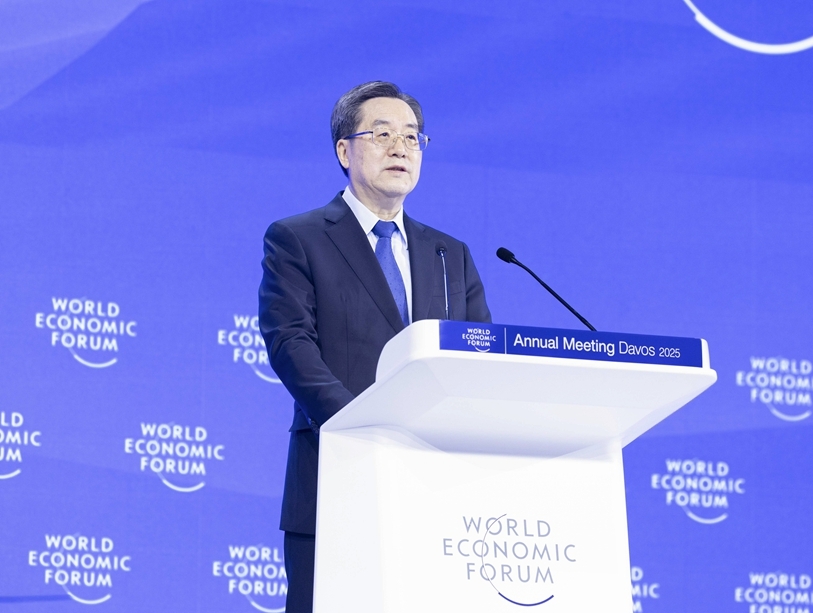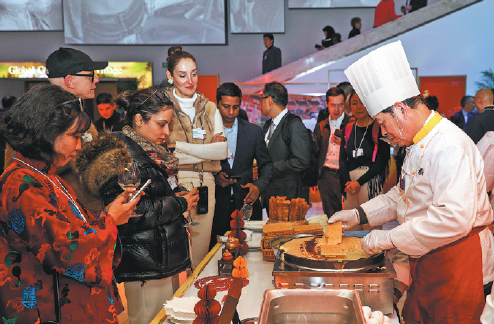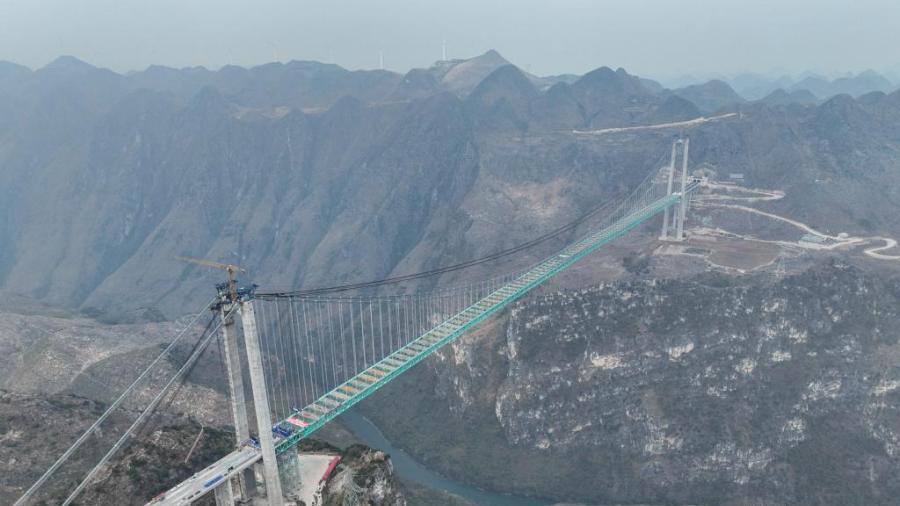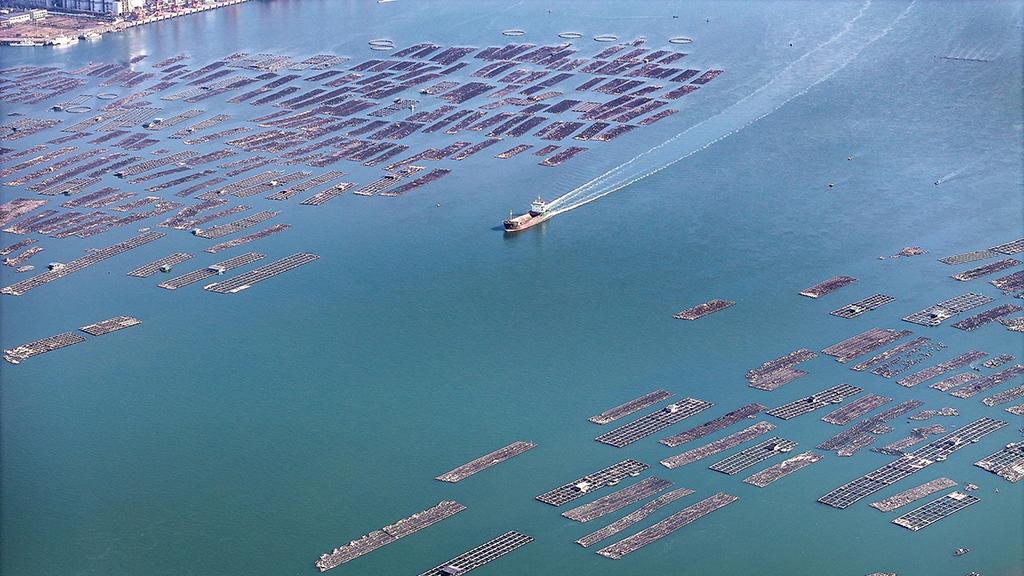Global unity stressed at Davos

Chinese Vice-Premier Ding Xuexiang on Tuesday delivered a special address at the World Economic Forum Annual Meeting 2025 in Davos, Switzerland. (Photo/Xinhua)
Vice-Premier Ding Xuexiang has warned of "unimaginable" consequences if the world becomes divided, and he emphasized the need for the international community to work together to oppose a Cold War mentality and zero-sum game, and build a more equitable international order.
"If the world becomes divided, it will be difficult for humanity to address common challenges together, and the world could relapse into confrontation and even wars, and no country could remain unaffected," Ding said on Tuesday during the World Economic Forum Annual Meeting 2025 in Davos, Switzerland.
Ding's appearance at the Davos event made him the first senior leader from China to address global concerns about the country's economic prospects and foreign policy priorities since US President Donald Trump assumed office for his nonconsecutive second term on Monday.
Ding told the attendees at the event that global governance is undergoing profound adjustments, with imminent tariff wars and trade wars, an ongoing tug-of-war between the forces for and against economic globalization, and intense rivalry between multilateralism and unilateralism.
He underlined the need for the international community to jointly promote universally beneficial and inclusive economic globalization, saying that "protectionism leads nowhere" and that a trade war "has no winners".
"In terms of foreign trade, we don't seek a trade surplus; we want to import more competitive quality products and services to promote balanced trade," he said.
Ding called for upholding and practicing true multilateralism, pursuing the vision of global governance featuring extensive consultation and joint contribution for shared benefit, and ensuring equal rights, opportunities and rules for all countries in international affairs.
This year's WEF annual meeting, running from Monday to Friday, is taking place under the theme "Collaboration for the Intelligent Age".
While highlighting the importance of leveraging artificial intelligence and emerging technologies to bridge global divides and drive inclusive, sustainable economic growth, Ding called for improving global governance on AI development to ensure that AI becomes an "Ali Baba's cave" filled with treasure, rather than a "Pandora's box" of uncontrollable risk.
He urged global cooperation under the United Nations to create strong governance frameworks to ensure that AI benefits humanity while avoiding risks.
The benefits of technology should be shared, he said. "We aim to bridge the tech gap and avoid allowing innovation to become a game for the rich countries alone."
China will collaborate with countries from around the world in AI development, especially when it comes to sharing new technologies with countries in the Global South, he added.
Regarding the Chinese economy, Ding underscored China's high-quality development, noting its 5 percent GDP growth last year despite external and structural challenges.
He said that the difficulties faced by the Chinese economy stem not only from the impact of the external environment, but also from the growing pains associated with its own economic structural adjustments. China will adopt more proactive policies to boost consumption and investment, and will promote scientific, technological and industrial innovation, he said.
China will further intensify macro policies, and adopt a more proactive fiscal policy and an appropriately accommodative monetary policy, Ding said, adding that the country will promote the sound and stable development of the capital market, stabilize the real estate market, and effectively prevent and defuse local government debt risks to effectively pursue higher-quality economic growth.
He also said that the country welcomes more foreign companies to invest and do business in China and share in its opportunities. "China's door of opening-up will not be closed and will only open even wider, and our business environment will only get better."
Ding reaffirmed China's unwavering commitment to peak its carbon emissions before 2030 and achieve carbon neutrality before 2060.
Fabrice Megarbane, chief global growth officer of the French cosmetics company L'Oreal Group, said that with its presence in China for almost 27 years, L'Oreal has witnessed the development and opening-up of China.
"We've been investing in China. We've been growing with China. And even recently we have increased our investment to our center in Suzhou. We've been introducing more brands to the market. We've also been extremely determined to contribute to China's rebound in domestic consumption," Megarbane said.
Anny Zhang, CEO of JLL China, a global real estate services company, highlighted Ding's speech about China's opening-up policy, saying that JLL's own expansion in China can serve as firsthand testimony.
"Over the years, we have witnessed the openness and innovation of the Chinese market, which provides a solid foundation for foreign companies to set up and grow," Zhang said. "As China further opens up, we look forward to growing and prospering together with the market and contributing to the renewed development of global cities."

Participants try Tianjin crepe at a reception held by the Chinese city during the World Economic Forum Annual Meeting 2025 in Davos, Switzerland, on Tuesday. Tianjin, the host city of the 2025 Summer Davos (Annual Meeting of the New Champions), held the reception on Tuesday evening to mark the upcoming Spring Festival. (Peng Ziyang/Xinhua)
Photos
Related Stories
- Full text: Address by Vice Premier Ding Xuexiang's at World Economic Forum Annual Meeting 2025
- World Economic Forum kicks off
- Chinese companies to take active role at Davos, reinforcing globalization vision
- UN chief urges global collaboration to address mounting challenges
- WEF annual meeting to push for global collaboration
Copyright © 2025 People's Daily Online. All Rights Reserved.









